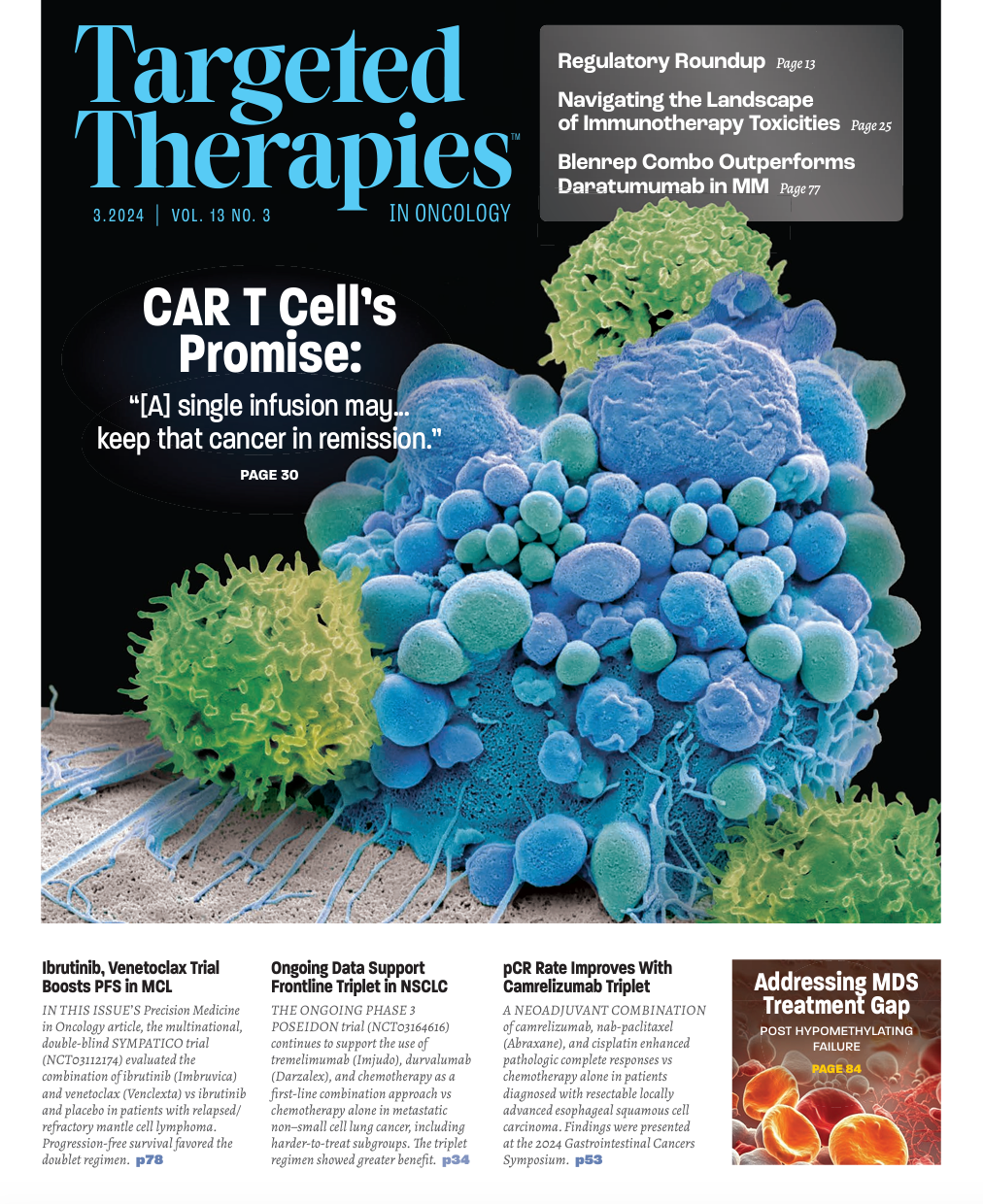Precision Medicine Implemented in the Community Oncology Setting
Technology plays a pivotal role in enhancing precision medicine within cancer care.
Marcus Neubauer, MD

Precision medicine has emerged as a cornerstone of cancer care, ensuring that patients receive the highest quality of personalized treatment. Its application extends to identifying at-risk individuals, preventing cancer, tailoring therapies, and monitoring treatment efficacy.
However, community-based oncology practices face unique challenges in the ever-evolving landscape of cancer biomarkers and therapies. These practices often serve diverse patient populations in rural and underserved areas, offering treatment for various cancer types. Managing this complexity while staying current with the latest biomarker testing and treatment guidelines can be daunting.
To navigate this information explosion effectively, workflows must evolve for greater efficiency. The US Oncology Network (The Network), comprising over 2,600 independent, community-based providers, leverages technology, education, and and customized workflows to optimize precision medicine. This approach encompasses robust education, testing recommendations, simplified ordering processes, and swift access to results.
Sagran Moodley, Chief Innovation and Technology Officer, Ontada

The Role of Technology
Technology plays a pivotal role in enhancing precision medicine within cancer care. It is an enabler, streamlining clinicians’ workflows by reducing platform-switching and processing delays. Technology aids in monitoring pending test outcomes, delivering results at the point of care, and providing information helpful in making treatment decisions. Collaborations, such as The Network’s partnership with Ontada, are instrumental in addressing workflow inefficiencies.
Electronic health records (EHRs), such as Ontada’s iKnowMed Generation 2 EHR system, assume a central role in precision medicine, particularly within the intricate oncology landscape. EHRs provide oncologists access to clinical and administrative tools that bolster precision medicine, ensuring top-tier care delivery.
The evolving health care landscape amplifies the emergence of diverse solutions, empowering providers to enhance patient care and deliver tailored treatments. Notably, integrated access to biomarker test results and direct reference to National Comprehensive Cancer Network Guidelines streamline workflows and bridge information gaps. Comprehensive point-of-care treatment decision support and adaptable workflow integration within the EHR empower clinicians to deliver high-quality, precision- focused care without interruptions.
Enhanced Patient Engagement
Moreover, EHR systems must integrate with patient engagement solutions to expedite and simplify patient-practice interactions, including streamlined communication, efficient form completion, and health assessments. For medical practices to operate efficiently, transferring patient data seamlessly into the EHR and practice management systems is essential.
This transformative approach eliminates manual and burdensome steps associated with patient onboarding and consent, enabling digital form completion before the first visit and automatic updates to the and practice management system. Returning patients can conveniently revise their health status, ensuring that oncologists have real-time, up-to-date information at the point of care.
The Way Forward
The impact of existing technology in community oncology settings is evident, but the platform should offer comprehensive clinical decision support, particularly concerning key functions like biomarker testing. Providers can prioritize patient care when equipped with essential information, streamlining test ordering processes and integrating results seamlessly into the oncologist’s workflow for therapy selection.
Oncology is a dynamic field continually advancing through precision medicine, novel therapies, and enhanced research. In this evolving landscape, community oncologists need not navigate complexity in isolation: Precision medicine’s success and seamless integration hinge on harnessing the right technological support and strategic collaborations, which leads to high-quality cancer care for patients in their community, close to home.

Survivorship Care Promotes Evidence-Based Approaches for Quality of Life and Beyond
March 21st 2025Frank J. Penedo, PhD, explains the challenges of survivorship care for patients with cancer and how he implements programs to support patients’ emotional, physical, and practical needs.
Read More